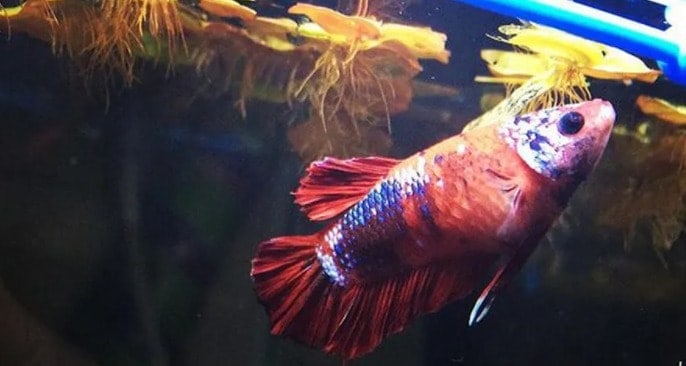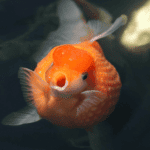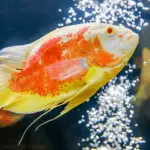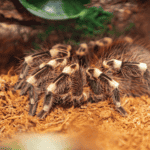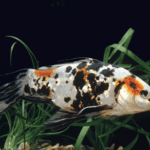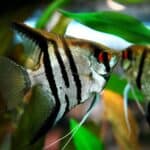Betta fish, with their vivid colors and dynamic fins, are a popular choice for aquarium enthusiasts. But just like any other pet, betta fish can face health issues, including the possibility of becoming overweight. Understanding the dietary needs and behaviors of these fish is crucial in maintaining their health and vitality. Overfeeding bettas can lead to obesity, which might not be as obvious as it is in other pets due to their small size and the natural shape of their bodies.

We must consider the dietary habits and biology of betta fish to determine if they are at risk of becoming fat. Betta fish are carnivorous, requiring a diet rich in protein, and they can display voracious feeding behaviors when presented with an abundance of food. It’s essential to strike a balance in feeding, as both underfeeding and overfeeding pose risks to their health. Overfeeding can lead to weight gain, as well as other health issues such as bloating and poor water quality, which subsequently can lead to diseases.
Monitoring the amount of food and the frequency of feeding is key to preventing obesity in betta fish. We recommend feeding them high-quality pellets or flakes specifically formulated for bettas, and supplementing with live or frozen foods as treats. Careful observation of the fish’s appearance and behavior plays a significant role in identifying any health concerns early on. By maintaining a controlled feeding regimen and ensuring a clean, enriching environment, we can help our betta fish lead a healthy and balanced life.
Understanding Betta Fish
We will explore vital aspects such as the natural habitat and behaviors, distinct physical characteristics, and crucial dietary needs of betta fish, often known as Siamese fighting fish.
Natural Habitat and Behavior
Betta fish originate from the warm and shallow waters in places like Thailand, Vietnam, and Cambodia. They are predominantly found in rice paddies, flood plains, and slow-moving streams. These tropical fish exhibit a unique labyrinth organ which allows them to breathe atmospheric oxygen, a trait that permits them to thrive in low-oxygen water systems. Bettas are known to be territorial and aggressive towards other males, hence the common name “Siamese fighting fish”.
Physical Characteristics and Body Condition
Betta fish are recognized by their vibrant colors and flowing fins. Healthy bettas should have:
- Bright, luminous coloration without any fading
- Unclamped fins—fin clamping can be a sign of stress or sickness
- A sleek body shape—abnormal roundedness might indicate a fat betta
Bettas should not have a bloated appearance unless after a meal, and even then, extreme bloating can be a sign of overfeeding, which can lead to obesity.
Dietary Needs
Bettas are carnivorous creatures, requiring a diet rich in protein. Their typical diet includes:
- Insects and insect larvae
- Brine shrimp
- Daphnia
Overfeeding bettas can contribute to obesity; hence, a regular feeding schedule is paramount. A good guideline is a pinch of food 2-3 times a day, with fasting for one day a week to prevent health issues like constipation and bloating.
Causes of Weight Gain

In our exploration of causes behind weight gain in betta fish, we focus on diet and environmental factors. These can be keys to why a betta may become overweight.
Overfeeding and Diet Imbalance
Overfeeding is a common cause of weight gain in betta fish. We often equate food with affection, leading us to offer more food than our betta fish need. An ideal diet should consist of a measured quantity of high-protein pellets or live food, tailored to the fish’s size. Overeating, specifically a high-protein diet, can quickly lead to obesity if not moderated.
Here’s an outline of proper feeding habits:
- Quantity: Feed betta fish 2-3 pellets, twice a day.
- Consistency: Maintain a regular feeding schedule.
- Diverse Diet: Include a mix of pellets and live food for balance.
Lack of Exercise
A betta fish confined to a small space may exhibit a lack of exercise. Adequate space to swim and explore is crucial for preventing weight gain. We must ensure their environment promotes physical activity, thus mimicking the betta’s natural habitat.
Consider these habitat modifications:
- Tank Size: A minimum of 5 gallons to allow sufficient swimming room.
- Enrichment: Plants and decorations to encourage exploration and exercise.
Stress Factors
Stress factors such as poor water quality, inadequate tank mates, or environmental changes can indirectly lead to weight gain. When a betta fish is stressed, its metabolism may slow down, and it might eat more as a coping mechanism. We need to maintain optimal water conditions and a serene environment to minimize stress for our betta fish.
Essential stress reducers include:
- Water Quality: Regular checks and changes to keep parameters stable.
- Tank Mates: Choosing compatible species to avoid aggression.
- Peaceful Environment: Minimizing noise and disruptions near the tank.
Recognizing Signs of an Overweight Betta

We’ll examine the indicators that can suggest a Betta fish is carrying excess weight, including physical appearance, behavioral cues, and changes in size.
Appearance Changes
Body Shape: Betta fish typically have a streamlined body. An overweight Betta may exhibit a noticeably rounder or fuller abdomen. We can look for a distended belly that appears bloated compared to the rest of the body.
Scales and Eyes: In severe cases, the scales around the abdomen may protrude visibly, a condition known as scale “pining.” Additionally, though less common, bulging eyes could occur due to fat deposits pressing behind the eye tissue.
Behavioral Signs
Swimming Difficulty: An immediate sign of an overweight Betta is a change in swimming behavior. A healthy Betta is active and agile, but one with excess fat may struggle, showing slower or labored movements. Watch for any difficulties in achieving buoyancy or a tendency to rest more frequently at the bottom of the tank.
Monitoring Weight and Size
Regular Checks: Although we can’t weigh a Betta fish on a traditional scale, we can monitor for rapid growth that doesn’t align with normal growth patterns. A Betta’s size should remain consistent in adulthood, so an increase in size could be due to weight gain.
Comparative Analysis: Periodic photos or videos can serve as a comparative tool to assess changes over time. This helps us track any increases in body condition that could indicate the fish is overweight.
Health Risks of Obesity in Betta Fish

Obesity in Betta fish can lead to a range of health concerns, including an increased risk of infection, impaired swimming ability, and reduced longevity. We will examine the main health risks associated with obesity in Betta fish.
Bacterial Infections and Diseases
Betta fish that are overweight are more vulnerable to bacterial infections because excess fat can weaken their immune system. This compromised immunity makes it easier for bacteria to take hold and lead to diseases such as dropsy, which is characterized by a swollen body due to fluid accumulation. Ensuring a balanced diet and proper feeding schedule will reduce these risks.
- Main concerns: Weakened immune system, susceptibility to infections
- Diseases to watch for: Dropsy and other bacteria-related issues
Swim Bladder Disorder and Bloating
Excessive weight can impede the function of a Betta’s swim bladder, an organ that helps control buoyancy. Obesity may lead to swim bladder disorder, where a Betta struggles to maintain its position in the water, often floating at the top or sinking to the bottom. This can cause stress, lethargy, and further health complications if not addressed.
- Symptoms: Difficulty swimming, floating/sinking abnormally
- Measures: Monitor diet, avoid overfeeding
Impact on Lifespan and Vitality
Overweight Betta fish typically exhibit reduced vitality and may have a shorter lifespan. Lethargy is a common sign of obesity in Betta fish, indicating poor health and a lack of energy. Keeping our Betta fish lean and fit is essential for their overall well-being and longevity.
- Indicators: Decreased activity levels, shortened lifespan
- Goal: Promote a healthy weight through diet management and regular exercise activity
Proper Feeding Practices

In maintaining the health of betta fish, we recognize the significance of proper feeding practices. It’s essential to understand meal portions, frequency, and the type of fish food to prevent health issues such as obesity.
Meal Portions and Frequency
We should feed our betta fish two to four small meals daily, with the amount per meal being only as large as the fish’s eye. Overfeeding can lead to obesity and water quality problems due to uneaten food decomposing in the tank.
- Daily Meal Frequency: 2-4 times
- Portion Size: Size of the fish’s eye
Selecting the Right Fish Food
Selecting the appropriate food is critical for our betta fish’s nutrition. We recommend high-quality pellets formulated specifically for bettas, which contain the right balance of protein and nutrients.
- Betta Pellets: High in protein, low in fillers
- Occasional Treats: Include live or frozen foods like brine shrimp or bloodworms.
Avoiding Overfeeding
To avoid the common problem of overfeeding, we must be vigilant. We should always remove uneaten food after a few minutes to prevent water contamination and monitor the betta for signs of overfeeding, such as bloating.
- Remove Leftovers: After 2-3 minutes
- Monitor for Bloating: A sign of overfeeding
By adhering to these guidelines, we can ensure our betta fish receive adequate nutrition without the risk of excess food causing health and environmental issues.
Maintaining Ideal Tank Conditions
We must ensure that betta fish live in a tank environment that emulates their natural habitat to promote health and prevent obesity. Proper water parameters, tank cleanliness, and environmental enrichment are vital for their well-being.
Optimal Water Parameters
The stability of water conditions is crucial for the health of betta fish. We should maintain a water temperature between 76 to 81 degrees Fahrenheit to support their tropical nature. Essential parameters for water conditions include:
- pH level: 6.5 to 7.5
- Ammonia: 0 ppm
- Nitrite: 0 ppm
- Nitrate: <20 ppm
- Water Hardness: 3-4 dGH
Regular testing and adjustments ensure these parameters stay within the safe range.
Tank Size and Cleanliness
A spacious tank is fundamental; a minimum of 5 gallons per betta fish is recommended. Here’s what we must take care of:
- Weekly Water Changes: 20-25% to remove toxins
- Filter Maintenance: Clean/change filters regularly to prevent waste buildup
A clean tank with adequate space allows for better swimming, reduced stress, and less risk of overeating.
Enrichment and Exercise Opportunities
We can reduce the risk of betta fish becoming overweight by providing an enriched environment that encourages natural behaviors. This includes:
- Plants: Live or silk; provide hiding spots and mimic natural habitat
- Toys: Floating logs, betta hammocks for stimulation
Exercise is promoted through structures that allow betta fish to explore and swim freely within the tank.
Addressing Weight Issues
In tackling weight issues in betta fish, we focus on dietary management, professional consultation, and appropriate treatment when necessary.
Diet Adjustments and Exercise
We recognize that overfeeding is a common cause of weight gain in betta fish. To address this, we recommend a balanced diet comprising high-quality betta pellets and occasional treats such as daphnia or brine shrimp, which are less likely to cause constipation. We limit feeding to once or twice daily, ensuring the servings are no larger than the size of the betta’s eye.
Exercise is also a significant factor in maintaining a healthy weight. We encourage regular exercise by creating an engaging environment with plants, caves, or toys that prompt natural swimming behaviors.
Consulting an Aquatic Veterinarian
When we suspect a betta fish is overweight, we advise consulting an aquatic veterinarian for a proper diagnosis. An experienced vet can determine if the weight issue is due to overfeeding, a disease, or a genetic predisposition. They may perform a physical examination and, in some cases, recommend tests to rule out other conditions.
It’s essential to follow the advice of the aquatic veterinarian, as they can provide specific insights into the ideal weight management plan for our betta fish.
Treatment and Medication
If a betta fish’s weight issue is linked to constipation, we often find that dietary changes, such as incorporation of fiber-rich foods, can alleviate the problem. In more severe cases where bacterial infections are present, the veterinarian might prescribe antibiotics.
We always ensure medications are administered according to the prescribed dosages and schedules. Monitoring the betta throughout treatment is crucial for their recovery and return to a healthy weight.
Preventing Future Health Problems
In addressing betta fish health, we prioritize prevention as a key strategy. Through regular health monitoring, providing educational resources, and encouraging community support, we can ensure the well-being of our pet fish.
Regular Health Monitoring
We must observe our betta fish daily, watching for signs of overeating and obesity. For this purpose, create a simple Betta Fish Health Checklist that includes:
- Appetite Assessment: Note changes in eating behavior.
- Physical Observation: Look for physical changes like a bloated stomach.
- Activity Monitoring: Record any decrease in usual activity levels.
This routine monitoring helps in identifying health issues early and addressing them promptly.
Educational Resources for Owners
Educational resources are invaluable. We encourage owners to read care guides and nutritional information specific to betta fish, which often include:
- Feeding Guidelines: Portion sizes and frequency.
- Nutritional Needs: Types of food that are beneficial for betta fish.
- Weight Management Tips: Strategies to prevent obesity.
Having access to this knowledge enables owners to make informed decisions about their betta fish care.
Community and Support
Lastly, we highlight the importance of community forums and support groups. Here, fish enthusiasts can share experiences and advice on:
- Best practices: What works well for others in the care of their betta fish.
- Troubleshooting: Getting help from other members when your betta shows signs of health issues.
Active participation in these communities provides a network of support, ensuring the long-term health and happiness of our pet bettas.
